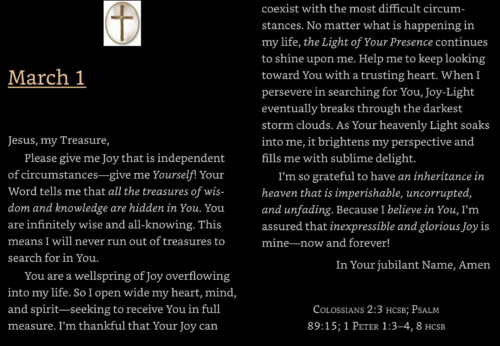Experiencing Our Own Deserts
Orthodox author John Chryssavgis considers the desert as a symbol of both “deserted-ness” and God’s presence:
Anyone who has experienced some aspect of deserted-ness, that is to say some form of loneliness, or else some form of brokenness, breakdown or break-up—whether emotionally, physically, or socially—will be able to make the necessary connections. Each of us has known times of drought; dry and arid moments when we await refreshment and rain, when we wait for hope and life.…
The desert, while accursed [in the Scriptures], was never seen as an empty region. It was a place that was full of action.… It was a space that provided an opportunity, and even a calling, for divine vision. In the desert, you were invited to shake off all forms of idolatry, all kinds of earthly limitations, in order to behold—or, rather, to be held before—an image of the heavenly God. There, you were confronted with another reality, with the presence of a boundless God, whose grace was without any limits at all. You could never avoid that perspective of revelation. After all, you cannot hide in the desert; there is no room for lying or deceit there. Your very self is reflected in the dry desert, and you are obliged to face up to this self. Anything else would constitute a dangerous illusion, not a divine icon….
The desert is a place of spiritual revolution, not of personal retreat. It is a place of inner protest, not outward peace. It is a place of deep encounter, not of superficial escape. It is a place of repentance, not recuperation. Living in the desert does not mean living without people; it means living for God.
Chryssavgis encourages us to face desert experiences instead of running away:
One does not have to move to the geographical location of the wilderness in order to find God. Yet, if you do not have to go to the desert, you do have to go through the desert…. The desert is a necessary stage on the spiritual journey. To avoid it would be harmful. To dress it up or conceal it may be tempting; but it also proves destructive in the spiritual path.
Ironically, you do not have to find the desert in your life; it normally catches up with you. Everyone does go through the desert…. It may be in the form of some suffering, or emptiness, or breakdown, or breakup, or divorce, or any kind of trauma that occurs in our life. Dressing this desert up through our addictions or attachments—to material goods, or money, or food, or drink, or success, or obsessions, or anything else we may care to turn toward or may find available to depend upon—will delay the utter loneliness and the inner fearfulness of the desert experience. If we go through this experience involuntarily, then it can be both overwhelming and crushing. If, however, we accept to undergo this experience voluntarily, then it can prove both constructive and liberating.
